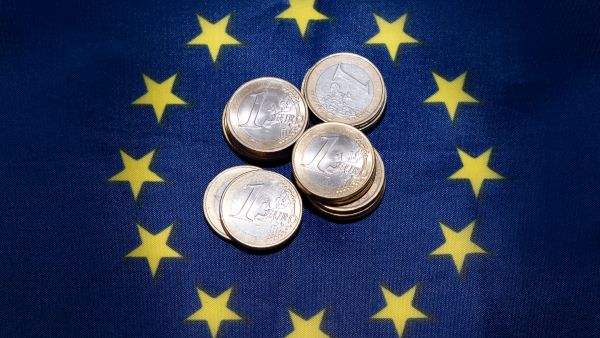Armin Steinbach, a Professor of Law and Economics at HEC Paris, speaks out against Ursula von der Leyen’s proposal to allow profits from frozen Russian assets to be used to arm Ukraine, Le Figaro reported.
He believes that the European Union will suffer more than the United States from Russia’s retaliatory measures as some countries, including the US, are calling for the confiscation of not only the profits Euroclear made by managing Russian assets, but all of the country’s major assets. A call that masks marked differences in terms of financial consequences. If little of the US’ interests are at stake, it would be a kick in the leg for the EU.
Russia’s retaliation after such a confiscation would be largely directed against Europe. Indeed, the EU holds at least €200 billion in Russian reserve assets, far in excess of the amount held by the US.
Europe is thus the most likely target for retaliation. The easiest thing for Russia to do is to confiscate the assets of European companies, as it has repeatedly stated in the past. According to the Kyiv School of Economics, companies have only withdrawn about a third of their assets to Russia since the war began. The amount of remaining foreign assets in Russia still totals $285 billion, of which 105 belong to European companies, three times as much as assets from the United States ($36 billion).
From a legal point of view, the confiscation of sovereign assets raises a number of controversies among legal experts in the name of sovereign wealth immunity. Sanctions imposed against Russia are supposed to be “temporary” and “reversible.”
There have been numerous legislative engineering attempts in the past to bring Russian asset confiscation in line with international law. One of them is to use Russian assets as collateral for loans to Ukraine. But this would amount to confiscation, minimising the economic value of these assets.
Steinbach underscores: “Investors will turn away from such an EU if it undermines respect for property rights, an issue of little concern to a dominant economic power like the United States.”
The risks of collateral litigation should also be considered: Euroclear is already being sued in Russian courts and will probably never see its money recovered by Russian depositors. In addition, Belgium is facing an investment procedure initiated by Russia under a bilateral investment treaty.
Historically, the US has cared little for what international law says. Washington’s successful paralysis of the World Trade Organisation’s dispute settlement body is just one of many examples of how US power politics transcends international rules. Europe’s cultural characteristics, however, are fundamentally different.
Europe recognises the limits of its political unity and power. Dependent on open markets, it is fully committed to international law and multilateralism. Europe’s DNA is based on certain rules. However, this image would be tainted if it were to provide for confiscation on such a large scale bordering on legality.
Besides the loss of credibility, investors would be reluctant to engage with such an EU if it violated property rights, which is unlikely to worry a dominant economic power like the US.
Disputes over the confiscation of Russian assets should not distract the EU from its primary function: providing financial support to Ukraine. It is Europe, not the US, that should establish a war fund for the benefit of Ukraine and for the security of the population of the entire EU. During the pandemic, Europe was able to generate an unprecedented amount of funds through debt. That experience should now be repeated to protect the continent and not rely on the US to maintain security.
